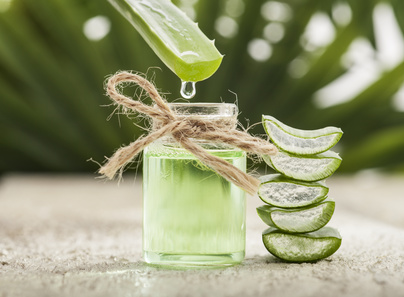 You can’t accuse us of not liking salmon here at Natural Health Source. There’s a good reason for that – evidence keeps piling up that this oily, coldwater fish may do everything from encourage hair growth to help you fight off depression and keep a few marbles upstairs.
You can’t accuse us of not liking salmon here at Natural Health Source. There’s a good reason for that – evidence keeps piling up that this oily, coldwater fish may do everything from encourage hair growth to help you fight off depression and keep a few marbles upstairs.
The fact that it’s delicious, and low in mercury, doesn’t hurt either.
Fish in general seem to be good for health and longevity. We’ve all seen the statistics, that folks who eat seafood tend to live longer that people who don’t indulge in foods from the ocean. Those people often live on the Mediterranean and in Okinawa, where life expectancy is north of 85 years.
Still, there’s a distinct pecking order when it comes to seafood. Some fish are high in toxins like mercury and have unhealthy fatty acids. Catfish and tilapia fall into that category – with apologies to folks in the deep south. And at the top of the list? Three guesses and your first two don’t count: salmon, which may be one of the healthiest foods on the planet.
Why Salmon? (Hint, It’s the Omega-3)
You’ve heard of omega-3 fatty acids. They’ve been championed by many a health expert over the past ten years for their health benefits – omega-3s are essential fatty acids that reduce inflammation in the blood vessels, joints, heart and brain.
Omega-3s perform a variety of functions, from lowering triglycerides to building cell membranes in the brain. But the body can’t make omega-3 fatty acids, meaning you have to get them from diet. And they’re exceptionally high in oily, coldwater fish, like halibut, herring, sardines – and salmon.
So what makes salmon stand out? Well, it’s among the highest sources of omega-3 fatty acids of all coldwater fish, according to the University of Michigan, at 3.2 grams of Omega-3s per 6 oz portion. Only European anchovies canned in oil clock in higher. Yet wild salmon are caught sustainably and among fish with lowest levels of mercury.
Meaning? Salmon may help you be one healthy camper. Consider these 7 reasons why you may want to indulge in this proven superfood – barring food allergies, of course:
Reason #1 – You May Help Your Heart
Eating fish helps your heart. We know this – the American Heart Association has long recommended folks eat fish species high in omega-3s at least twice a week. That’s because inflammation can damage blood vessels and lead to heart disease. Salmon may help guard against heart disease by lowering inflammation, and irregular heart beat, heart failure and even risk of stroke.
Researchers think it’s the combination of nutrients in coldwater fish like salmon that make it so good for the heart. The jury’s still out on what that combination might be, but it’s a good bet that omega-3 fatty acids are at the center of it.
Reason #2 – You May Feel Better
A Chinese review of evidence found that people with high fish consumption had a 17% lower risk of depression than folks who ate less of our friends from the ocean. That link was only significant for studies done in Europe, but it’s a logical connection. Omega-3 fatty acids may change the structure of cell membranes and strengthen the connection between neurotransmitters in the brain.
The latter are chemicals that send messages between brain cells.
 There’s no word if fish oil supplements would offer the same benefits. But salmon, with its high vitamin D content may be of interest to people who struggle with depression, and put folks in a better frame of mind – and may even guard against memory loss in the future.
There’s no word if fish oil supplements would offer the same benefits. But salmon, with its high vitamin D content may be of interest to people who struggle with depression, and put folks in a better frame of mind – and may even guard against memory loss in the future.
Reason #3 – You May Protect Your Joints
Inflammation can lead to arthritis and related joint pain if left unchecked. Salmon may have an answer for that too. Small proteins in the fish, called bioactive peptides, appear to increase and protect collagen synthesis. What’s more, you may also develop greater bone strength and density.
Reason #4 – You May Protect Your Eyes
Carrots get the accolades, but salmon is no slouch for eye health either – evidence suggests eating salmon twice a week may reduce macular degeneration, which can lead to loss of vision. Sneak in an extra 1-2 servings each week and you might even add a buffer against another condition called dry eye syndrome.
Reason #5 – You May Age Slower
A 2005 study found one of the omega-3 fatty acids in salmon, eicosapentaenoic acid (EPA), helped block release of collagen-busting enzymes. Rough translation: it may guard against wrinkles and sagging skin. That vitamin D should help your teeth as well, and combine with other nutrients in salmon to make it one of the best anti-aging foods for the money.
Reason #6 – You May Encourage Hair Growth
About 95% of hair is protein, which partly explains why hair loss occurs from crash diets. You need protein for hair growth – something you get in boatloads with salmon – along with those omega-3s. The latter helps make hair look shiny and more resilient.
Reason #7 – Your Swimmers Like It
Two years ago, researchers found that men who ate processed meats like bacon had fewer sperm and of lower quality. At the opposite end, guys who ate the most dark meat fish had 34% more swimmers than men who didn’t indulge in these nutrient-packed elixrs of goodness, including tuna, sable fish and, very notably, our friend Mr. Salmon.
Wild Or Farmed?
You’re going to hear two camps on this. Proponents of wild salmon, like myself, point to those higher nutrient levels. You get more calcium, more iron and more zinc when you go wild, while losing sodium and fat.
That’s never a bad thing.
While both wild and farmed salmon have similar levels of omega-3 fatty acids, fish raised in pens and fed soy lose out on many of the nutrients that brought you to salmon in the first place. That said, you can often buy farmed (sometimes called ‘Atlantic’) salmon fresh year-round – something you can typically do only in spring and summer if you like your fish of the wild variety.
Personally, I’d go with wild salmon year-round, even if that means previously frozen for eight months. Most experts say that any salmon is better than none. You can’t lose either way – though the taste of wild salmon may win you over.
Try This Salmon Recipe
We can’t leave you without a little taste of salmon to leave you wanting. Indeed, this salmon recipe from FoodNetwork.com is both mouth-watering and nutritious. Remember that some cooking methods are healther than others – baking and grilling tend to preserve nutrients for maximum health benefits, while you’ll lose some of them when you deep fry pretty much anything.
 Salmon With Lemon, Capers and Rosemary
Salmon With Lemon, Capers and Rosemary
This one’s courtesy of Ms. FoodNetwork herself, none other than Giada Di Laurentiis.
You’ll need:
4 (6 ounce) salmon filets
¼ extra virgin olive oil
½ teaspoon salt
½ teaspoon freshly ground black pepper
1 tablespoon fresh minced rosemary leaves
8 lemon slices (about 2 lemons)
¼ cup lemon juice (about 1 lemon)
½ cup Marsala wine (or white wine)
4 teaspoon capers
4 pieces of aluminum foil
Directions: Brush the top and bottom of the salmon filets with olive oil and coat with salt, pepper and rosemary. Place each filet in aluminum, fold over and seal. Place 2 lemon slices on each filet, along with 1 tablespoon of lemon juice, 2 tablespoons of wine and 1 teaspoon of capers. Then wrap up the filets tightly in the foil packets.
Next, place a grill pan over medium/high heat. Place the grill packets and cook, at roughly 10 minutes for each inch thickness of your salmon filets. Serve in the foil packets – and thank Giada De Laurentiis for that and many other salmon recipes that make salmon nothing short of awesome for your health and wellness!




